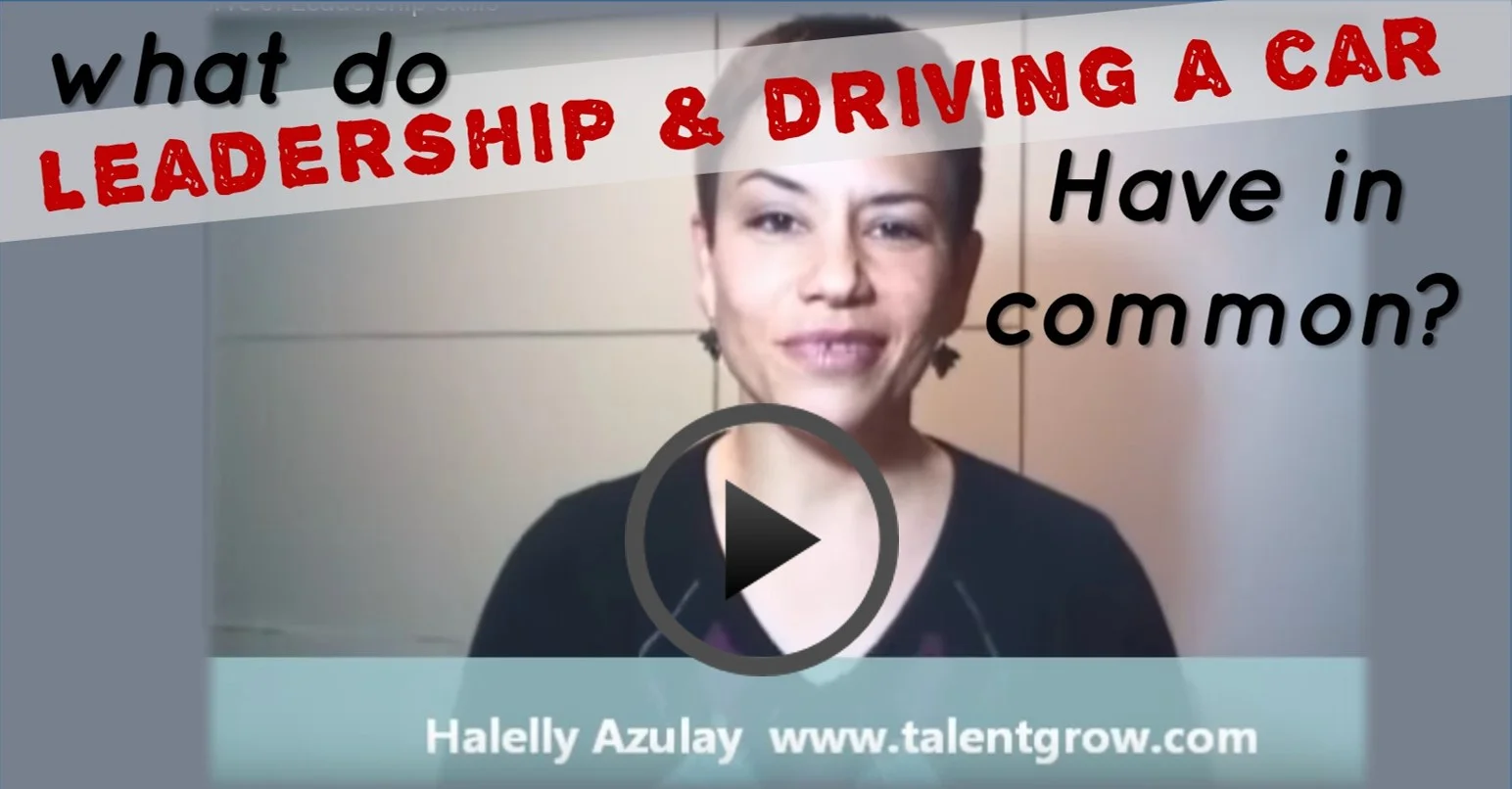What do leadership and driving a car have in common? [vlog]
/Have you ever learned new skills, and felt overwhelmed and intimidated? Did you feel unnatural and uncomfortable as you tried out your new skills? If you're like most, you might have even had doubts that you could really perform those new skills and a strong urge to revert back to your tried-and-true old habits.
In the vlog (video blog) below I share a useful analogy that likens the experience of learning any new skills to learning to drive a car for the first time. Please watch it here:
The Learning Cycle
The Learning CycleThe learning cycle has us going from a state of Unconscious Incompetence (you don't know what you don't know) to the realization that there is something we need to learn - Conscious Incompetence. We feel uncomfortable with being incompetent and get motivated to learn the skill. So we become Consciously Competent as we begin learning and practicing the new skill. We experience that discomfort and awkwardness because performing this new skill requires a lot of concentration and effort, and we aren't yet masterful in applying it -- it doesn't come naturally. And, if we push through the discomfort and continue mindfully practicing, we finally complete the learning cycle and arrive at the state of Unconscious Competence. We can now perform the new skill with little conscious effort - like being on 'auto-pilot'.
So - if you experience that awkward discomfort with a new skill, remember: it's natural and normal to feel this. Resist retracting. Push through, persevere, and practice mindfully, and you will eventually master it!
Would love to hear your reactions - have you experienced this? What do you think?
TRANSCRIPT
Halelly: Hi, I’m Halelly Azulay with TalentGrow, and I want to let you know, when I work with leaders and team members in a lot of different organizations, I try to help them learn new skills to improve their leadership and communication skills and team building skills. And a lot of the time, those skills do not feel very comfortable at first. And so our natural reaction is to recoil from them and feel like, “Maybe I’m no good at this. Maybe this is not for me.” It just feels overwhelming. So, we need to push through that feeling, and I have a good analogy that I’d like to share with you that I think illustrates the amazing capacity of us humans to learn new skills.
Have you ever had the experience of driving home from work or from school, from somewhere that you’re used to driving to a lot, and you got home safely but you have no idea of anything that happened on the drive? You just have no recollection whatsoever of driving, but you got there. This is like automatic pilot, right? Well, if you think about when you first learned how to drive, it was not the same thing. There were so many things to pay attention to and all of it was completely foreign and new. You had to look at the gauges on the dashboard to make sure that you were watching the speedometer and the odometer. You had to pay attention to what your feet are doing so that you’re pushing the brake pedal and not the gas pedal, depending on what you need. That you were looking through the rearview mirrors and the side view mirrors to make sure you know what’s going on not only in front of the car but also behind and to the sides of the car. You have to stay in your lane, read the traffic signals, read the signs, obey the speed limit, stay in your lane, not go over the sidewalk, use your turn signals, turn off your turn signals, there’s pedestrians, there’s other cars, and by the way – if you make a mistake, someone might die.
We sign up for this! In fact, we send 15-year-olds to do this. It’s amazing, right? And yet, we’re able to get from that complete sensory overwhelm and overload state of the new driver experience to this place where we can drive home and not know that we did it. In the learning world, that is part of the learning curve that says you moved from conscious competence of trying a new skill and it feeling really weird and really uncomfortable to unconscious competence, which means you have got it. You can do it without thinking about it. How do we get there? Well, it isn’t magic. It comes through mindful practice. It comes through knowing that at first it’s going to feel very awkward, and if you recoil, you won’t learn it. But if you push through and persevere through that initial discomfort and keep practicing, mindfully applying the new skill in as many situations as possible where it’s appropriate, you will eventually make that skill into second nature, and you won’t have to think about it as much.
So, when you’re learning a new skill, just keep working on it. Keep practicing mindfully. You can do it.
Sign up to my free weekly newsletter and get more actionable tips and ideas for making yourself a better leader and a more effective communicator! It’s very short and relevant with quick tips, links, and news about leadership, communication, and self-development. Sign up now!
Also, subscribe to my podcast, The TalentGrow Show, on iTunes to always be the first in the know about new episodes of The TalentGrow Show! http://apple.co/1NiWyZo
You Might Also Like These Posts:
Dancing at the edge of comfort: How to develop employees without demotivating them
5 Lessons on being a creative leader from three TalentGrow Show podcast guests
The Ultimate New Year's Resolution: Make 2014 Your Year of Fast Learning!



